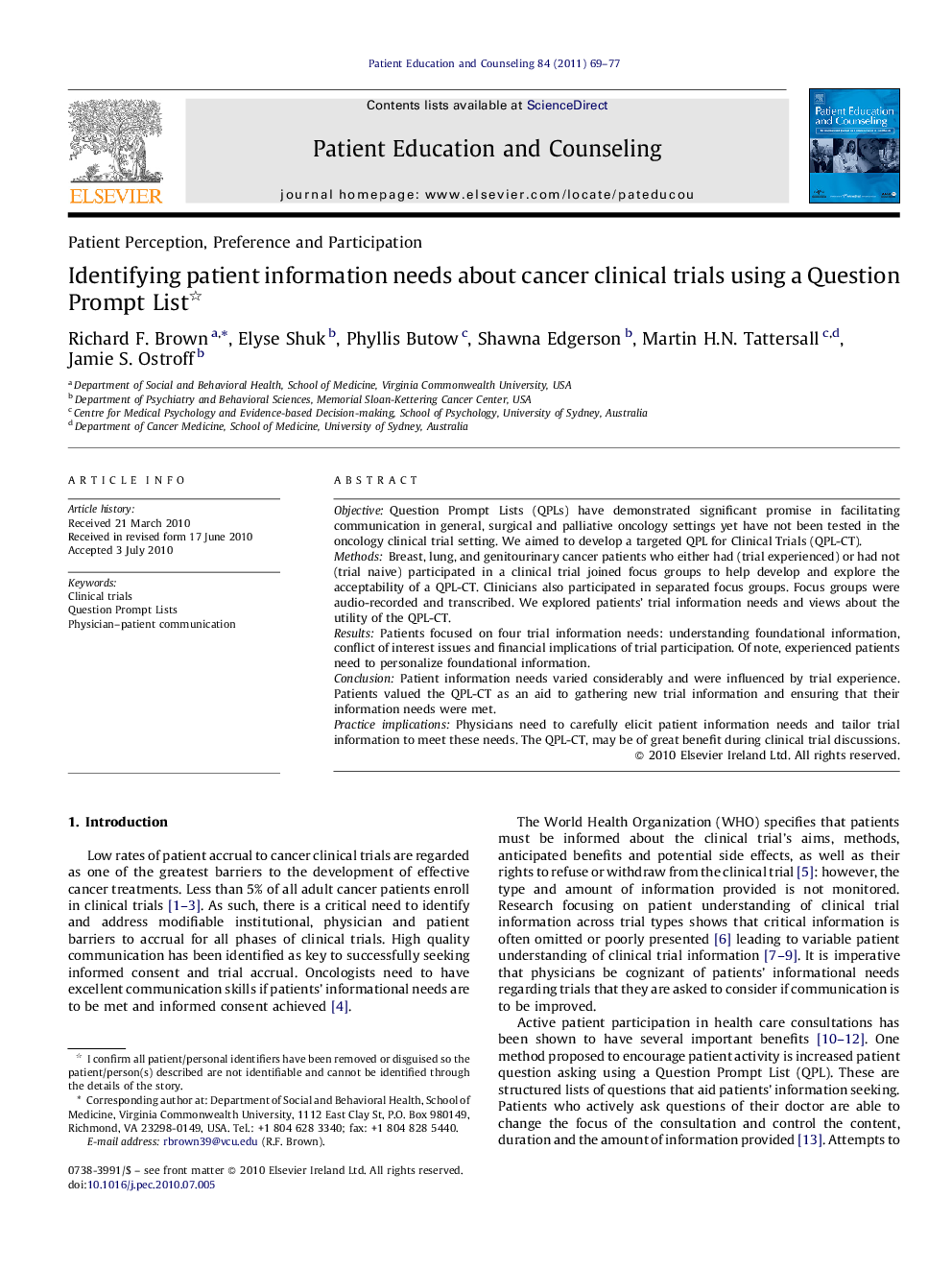| Article ID | Journal | Published Year | Pages | File Type |
|---|---|---|---|---|
| 6154266 | Patient Education and Counseling | 2011 | 9 Pages |
ObjectiveQuestion Prompt Lists (QPLs) have demonstrated significant promise in facilitating communication in general, surgical and palliative oncology settings yet have not been tested in the oncology clinical trial setting. We aimed to develop a targeted QPL for Clinical Trials (QPL-CT).MethodsBreast, lung, and genitourinary cancer patients who either had (trial experienced) or had not (trial naive) participated in a clinical trial joined focus groups to help develop and explore the acceptability of a QPL-CT. Clinicians also participated in separated focus groups. Focus groups were audio-recorded and transcribed. We explored patients' trial information needs and views about the utility of the QPL-CT.ResultsPatients focused on four trial information needs: understanding foundational information, conflict of interest issues and financial implications of trial participation. Of note, experienced patients need to personalize foundational information.ConclusionPatient information needs varied considerably and were influenced by trial experience. Patients valued the QPL-CT as an aid to gathering new trial information and ensuring that their information needs were met.Practice implicationsPhysicians need to carefully elicit patient information needs and tailor trial information to meet these needs. The QPL-CT, may be of great benefit during clinical trial discussions.
